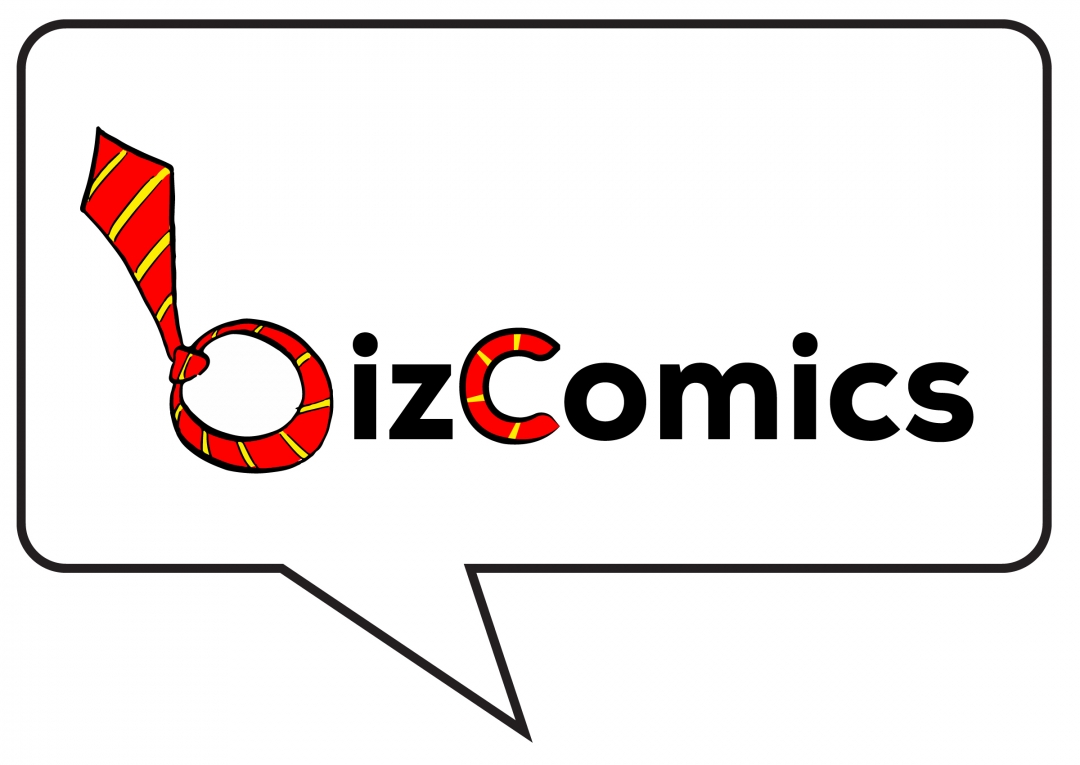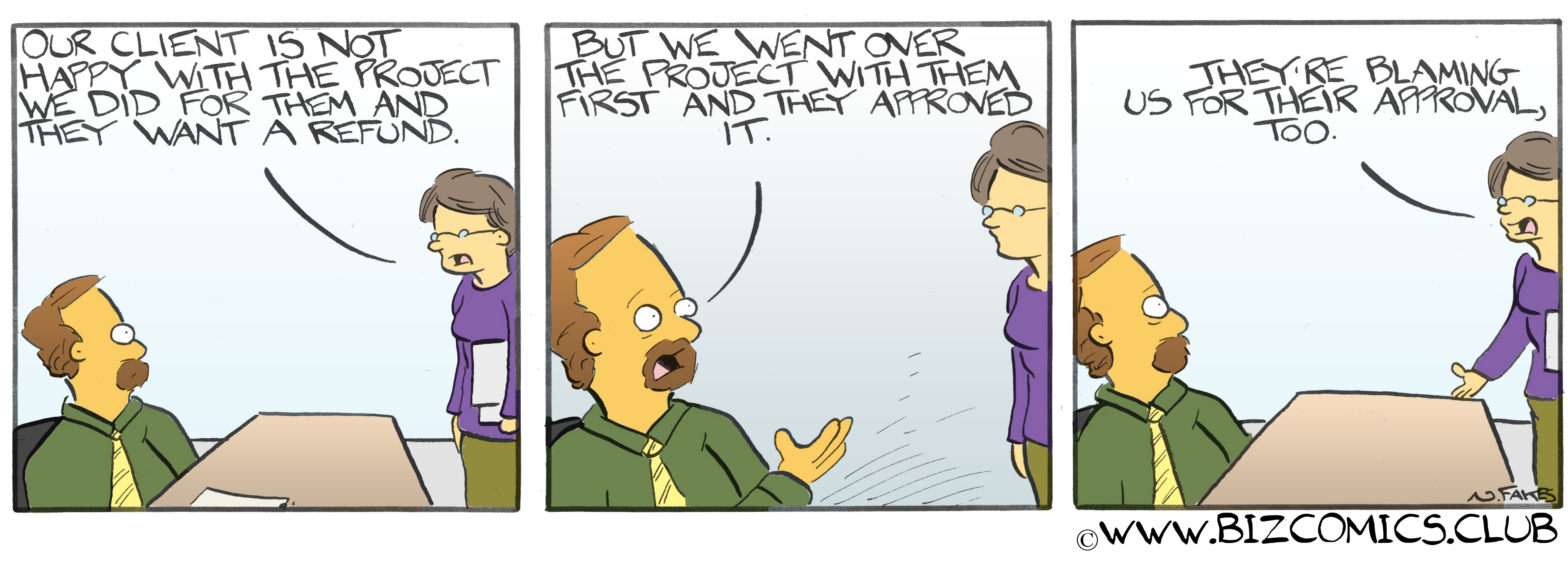We fondly recall the days before graphic-design software, electronic files, and digital printing. Why fondly? Because it was easier to assign and enforce responsibility and accountability.
In those Dark Ages of paste-up, composite layouts, photographic negatives, and printing plates, every project had an approval sheet that went in its job jacket and traveled with it everywhere. And every step — from design to layout, from copy checks to color overlays, from bluelines to press proofs — required a sign-off. The designer signed off. The proofreader signed off. The account person signed off. The printer signed off. The client signed off. Responsibility for any hiccups was traceable to its point of origin. It was clear and indisputable, as was accountability for the hiccup’s remedy.
That was then. This is now.
Today’s accountability loop is more like a circular firing squad: As soon as something goes sideways, everyone loads up, starts shooting, and has no aim other than to inflict blame on the other guy. (“Approve it? I never even saw it. Go pin it on somebody else!”)
What’s even worse is the influence on almost every business transaction of SAPS (suspicion and paranoia syndrome): “What? You want me to sign that? Why? If something goes wrong will I be in trouble? Will it go in my Permanent File?”
Yep. The sad fact is that SAPS has everyone running from responsibility and accountability like cats from vacuum cleaners. Integrity is scarce as hen’s teeth. And people avoid even the cookie jar for fear of getting caught with their hands in it. Why is that?
Darned if we know. But we do know this: Whatever we’ve lost, we should try to get it back. Reason. Order. Harmony. Congeniality. Peace of mind. Trust. Professionalism — any number of purely positive and highly desirable things could be restored if we could return to being as good as our words. And since we are, after all, human, perhaps we should make it a requirement that our word be proffered in writing.
Until we can pull that off, remember this: The more conscientious you are, the more likely you are to end up on the short end of something.

